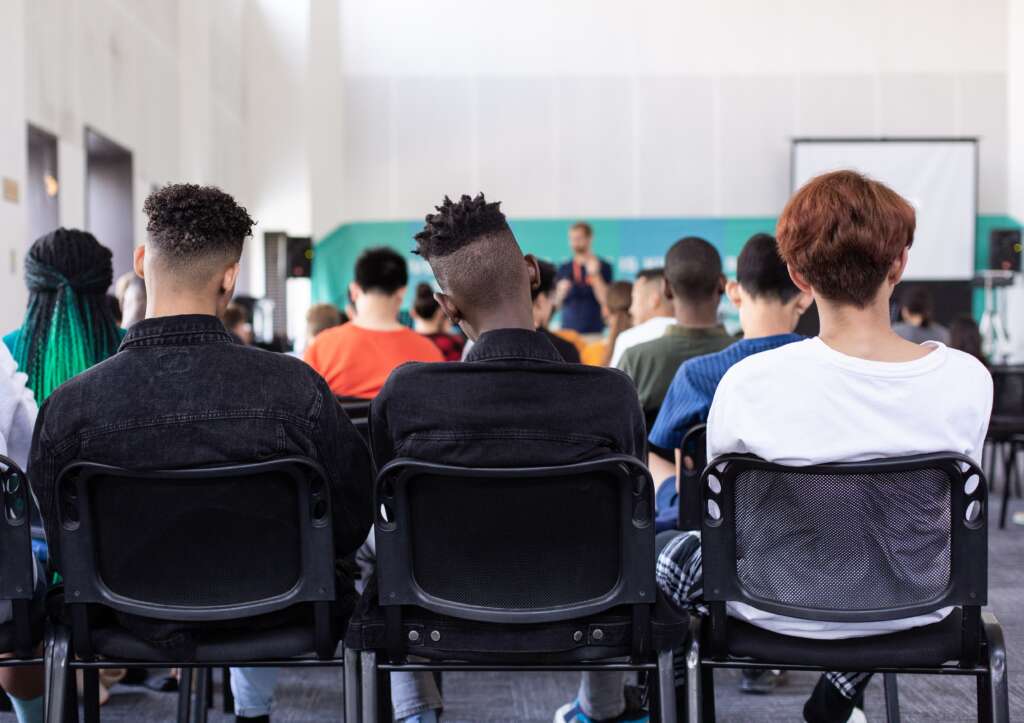What do you want to do when you grow up?
Do you remember being asked that question? Do you remember how being asked made you feel? Do you remember your response?
My great-grandmother thought I’d work in law enforcement because I had big feet (not sure how those things are connected, but that’s how the story goes).
When I finished high school I wanted to work in Information Technology, because I was good at it and at the time it was very much on trend.
I wonder if you recall how you answered that question when you were asked. I wonder what the background was to your response.

For young people finishing school, it can be a daunting time as they consider all the work and study options. It is not surprising then that often other opportunities are also considered (or reconsidered). Friendships change. Romantic relationships change. Housing arrangements change. Values are in question.
It was at this time in my life I found faith.
As I considered what and where to study, I was also asking questions about the future I imagined, what I wanted from life and who I wanted to become. I was also watching what others were doing and what was guiding their decisions.
“There should be an authentic or real link between the ‘author’ of the faith, Jesus, and the ones who are sent in his name.” – Matt Brain
A number of years ago I came across an incredibly insightful book by Matt Brain called Engage! How the Church Can Reconnect with Young People (Barton Brooks, 2011), which I ended up using extensively – not just in my work supporting local churches but also in a classroom setting training pastors.
As the title indicates, the book speaks of key postures that need to be embraced by churches to become more effective in their work in reaching young people. I believe its insights are also advantageous for those supporting young people as they navigate the ‘what’s next?’ questions that arise at the end of school and consider their future study and career paths.
The key insights that stand out to me as outlined by Brain are:
1. Authenticity
“The need for apostolic authenticity is reflected in the not uncommon cry among young people, ‘We like Jesus, but do not bother me with the church!’ There should be an authentic or real link between the ‘author’ of the faith, Jesus, and the ones who are sent in his name.” (Brain, 111)
I translate this to mean the need to build trust that points to Jesus.
As young people navigate change, they need people who are ‘for them’ to sit with them in the feelings of excitement, uncertainty, and overwhelm.
2. Proximity
“One significant aspect of the digital generation’s disengagement from the Christian churches is relational estrangement. This is shown in two ways. In the first instance, many young people have no deep or natural connection with a Christian community. Second, this disconnection has flowered into distrust of the Christian churches as institutions, which are perceived as being concerned chiefly with maintaining their own interests.” (Brain, 123-124)
I understand this to mean the need to stay close and listen attentively.
So how can this be translated into supporting young people as they navigate the ‘what’s next?’, and how might this be used by God to bring people to faith?

As young people navigate change, they need people who are ‘for them’ to sit with them in the feelings of excitement, uncertainty, and overwhelm. They need to know that God knows them better than they know themselves and that his future provides not simply eternal life in Christ but one that is truly life-giving.
As you sit with young women and young men over the coming months as they consider what’s next, may you choose to remain close and reassure them of God’s love. May you point them toward his plans and purposes, no matter their next steps, and may you be an example of his patience and grace.
May your life point them to Jesus and may they find faith in him.
Steve Dixon is the CEO at Bedford College, a Christian vocational education college that offers courses in business, leadership and management, early childhood education, individual support, ageing support and community services.


